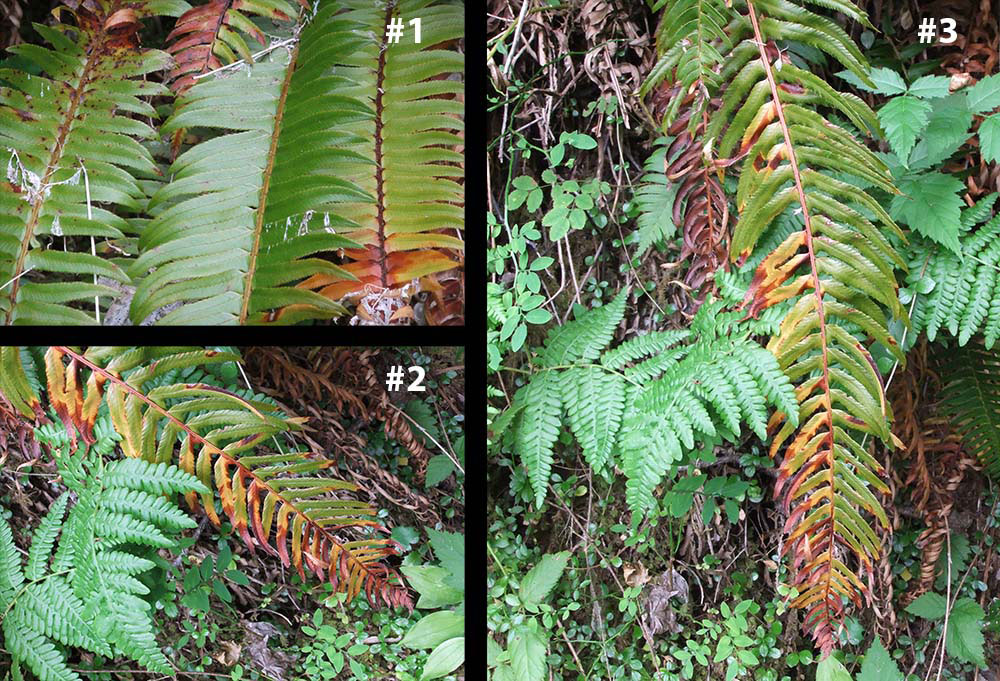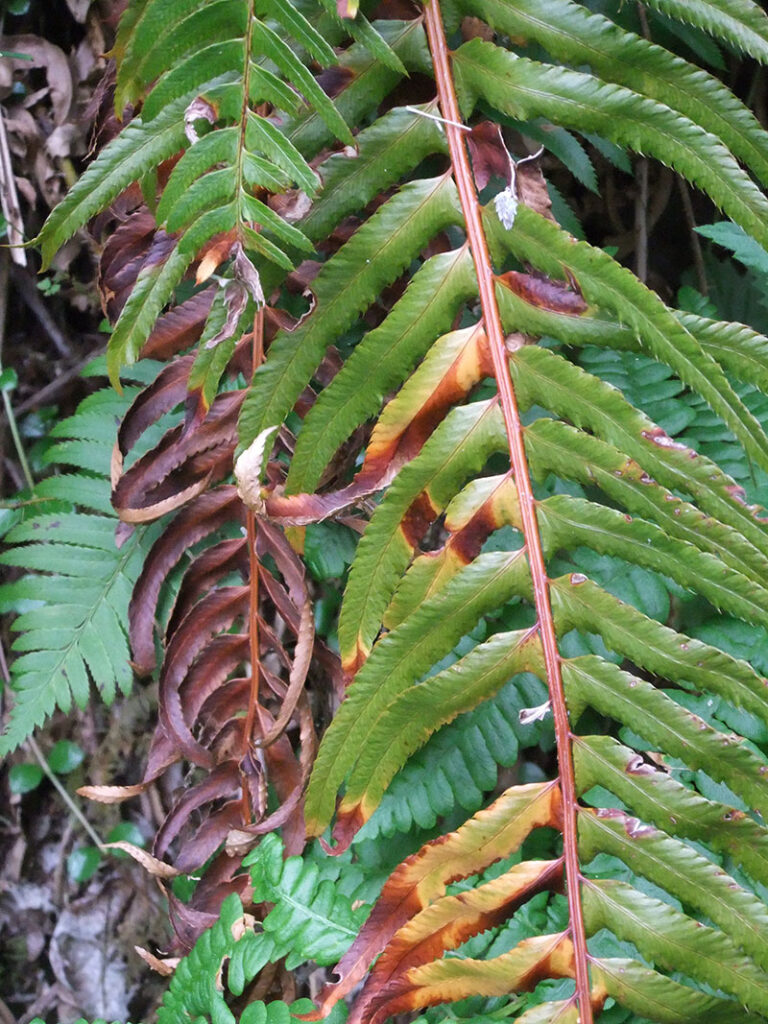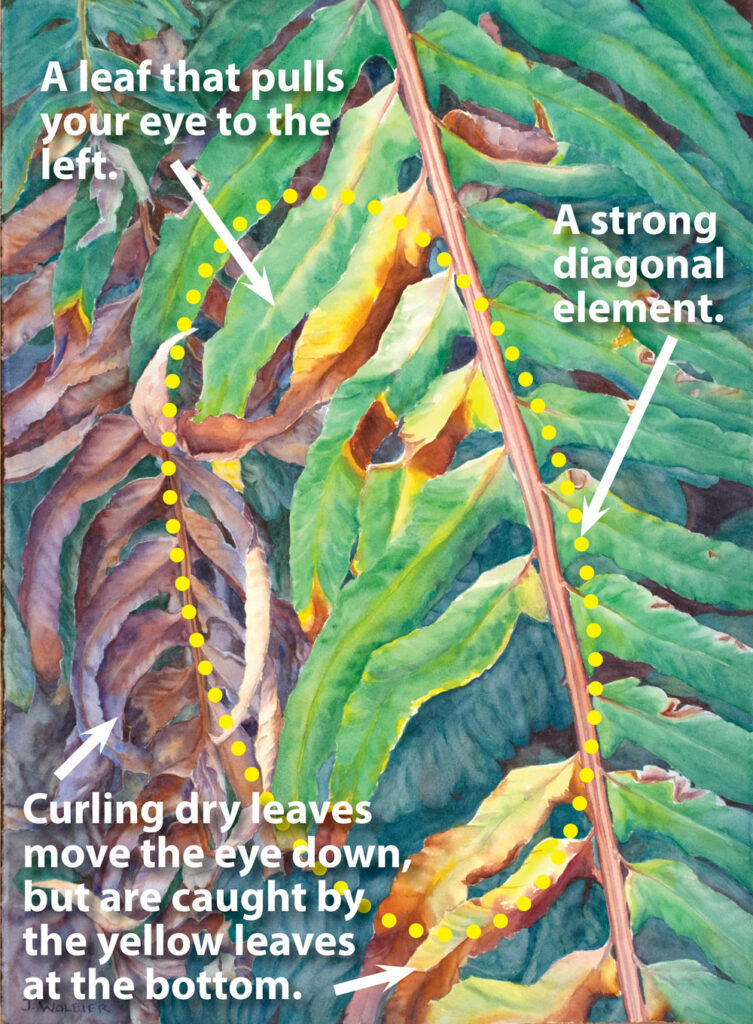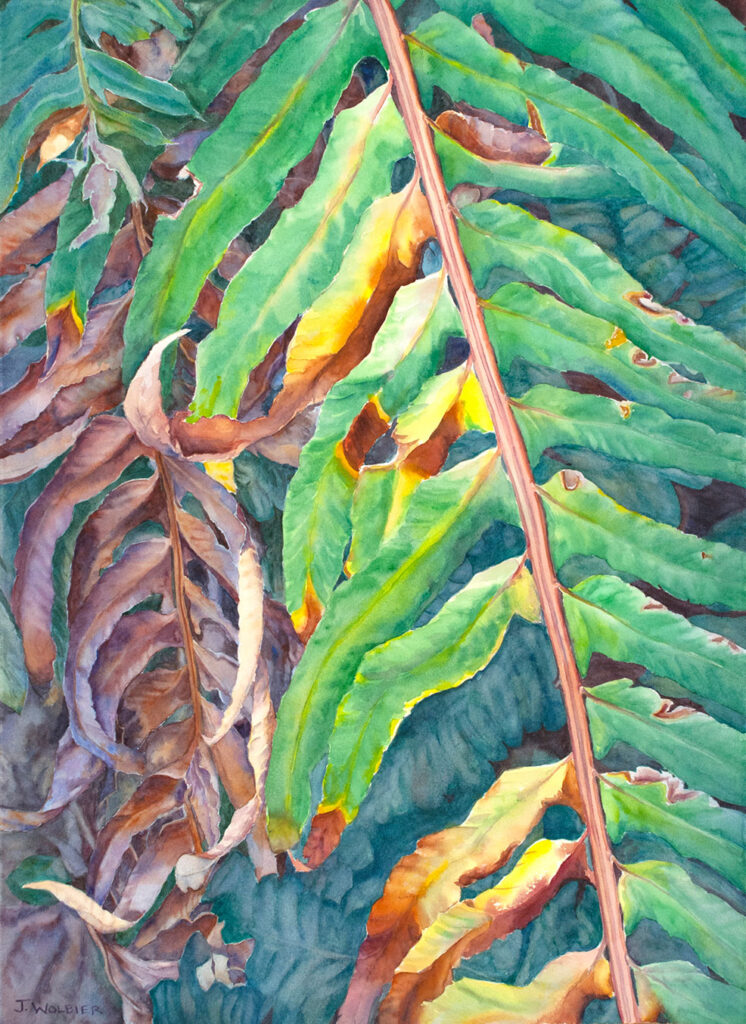Metaphorphosis:
Painting From Photographs
On a trip to the Olympic Peninsula in the Pacific Northwest, I was fascinated by the lush vegetation. Where I live in Colorado, it is much drier and seeing the greens and the many types of plants, I started photographing what I was seeing. I was especially interested in the ferns, the many types and the life stages of the plant. When I got home, I decided I wanted to paint the ferns.
PHOTOGRAPHS
Here are some of the photographs that I took. Looking at them, I had to decide which photograph to use and how to modify the photograph so that it worked as a painting. I use photographs a lot as sources for my paintings. I prefer to only paint from my own photographs, but occasionally I work from my husband’s if I was with him when he took them. I don’t just copy photographs. I make lots of modifications for several reasons. First of all, I am not a very good photographer so why copy something that is not so great to begin with. Also photographs often show too much detail or not enough. And a photograph doesn’t always represent what it is that I am trying to say in a painting.


The main problem with the lush, complex ferns in these photographs is exactly that. The photographs have too much information. Photo #1 has less information, but it is not a very interesting composition. Photo #2 is more interesting, but the many leaves have different colors and textures that don’t support each other or make sense. Photo #4 has some interesting possibilites, but is also way too confusing for my painting.
I decided to use Photo #4, but cropped in on a small section and then reworked parts to come up with a less complicated but more interesting composition.
COMPOSITION DECISIONS
To design the painting, I focused in on the one large fern stalk with the interesting leaves. It was the leaves that caught my eye. But the strong stem of the stalk created a compositional nightmare. It dominated the composition and I had to figure out how to balance it in the painting. Otherwise, the viewer’s eye would just flow right out of the top or the bottom of the painting. Compositionally, the dynamic fern stalk is balanced by the yellow and reddish-brown leaf about a third of the way down curling away from the stem which forces the viewer’s eye away from the stem to the left side of the painting. Here the viewer’s eye moves down the curling drying leaves on the left side of the painting and is then caught at the bottom by the yellow, reddish brown leaves to connect back to the stem. The viewer is drawn back up the stalk and the green leaves hanging down moves the eye back into the curling, drying leaves. There is a constant circle of eye movement.

Notice also how the painting emphasizes the leaves of the large fern by painting them brighter than the background leaves. The use of yellow and oranges in the bright greens bring them forward in the painting in contrast to the blueish green leaves in the background. In the photo the background leaves are much brighter and distracting. Using cooler or grayer colors forced these areas into the background. The photograph also has dark, almost black shadow areas but shadow areas are never truly black. There are details and color in shadows, so they need to be added into a painting. What is convincing in a photograph is not always convincing in a painting.
PAINTING TECHNIQUES
I started working on this painting with a detailed drawing and then transferred the drawing onto the watercolor paper. As demonstrated in my previous post, I loosely underpainted the leaves to determine the basic color scheme. I tested various color mixes on scrap pieces of watercolor paper and then carefully painted each of the parts of the painting adding glazes to adjust both colors and values. I spent a lot of time looking at the painting to determine where areas needed more color, more detail and also more darks.
Although I do not think of myself as a botanical illustrator, I love to paint plants. They are incredibly complex and always a challenge. I have to take a deep breath and tell myself to be very patient. I soon lose track of time and forget about the world.

